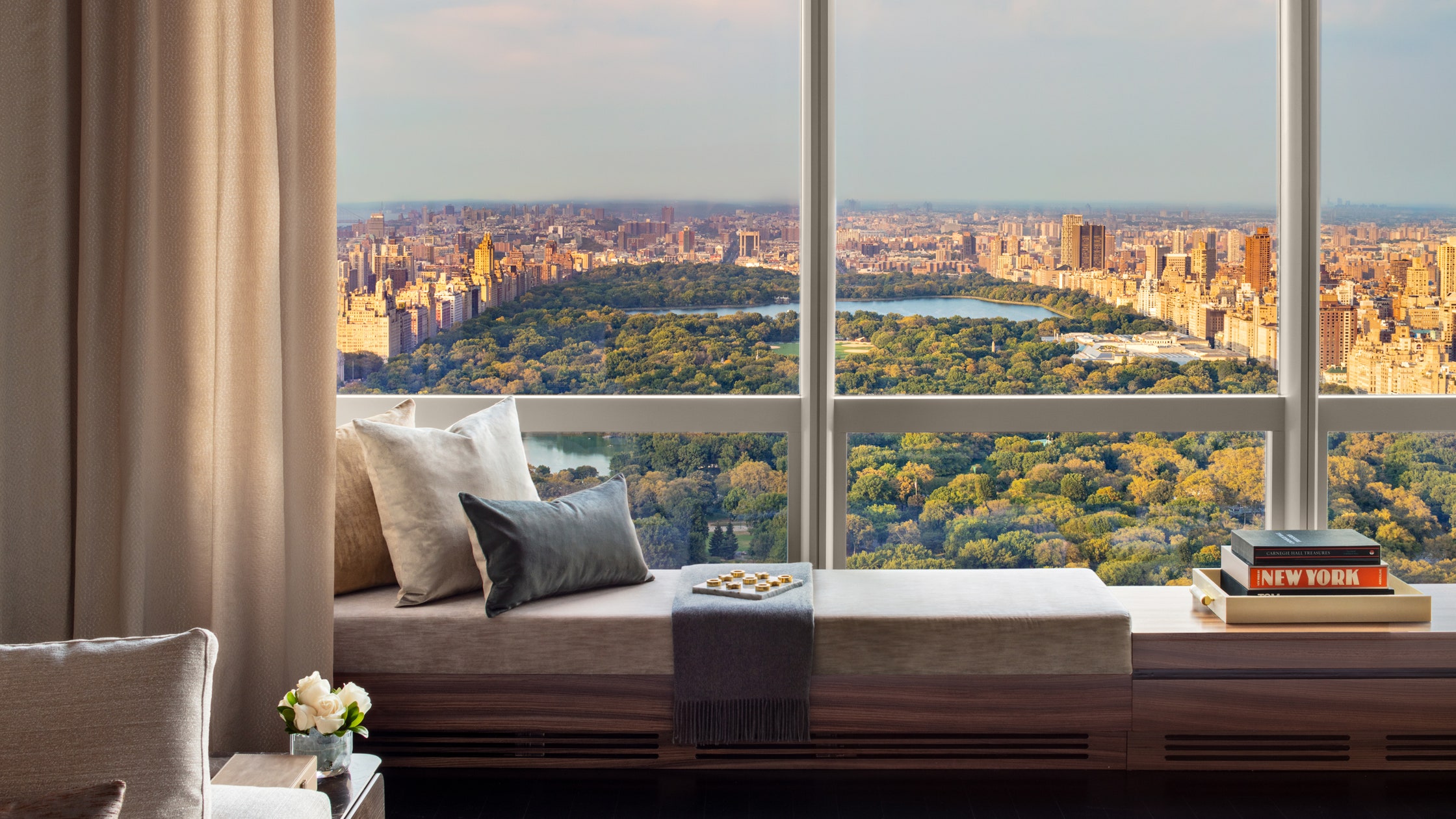Oh, the joy of a siesta, or a snooze on a shaded sun longer somewhere far-flung. Holidays can help us to reset, break with routine, and lull busy minds. Now, sleep tourism is the popular travel trend taking things one step further, in the form of sleep retreats. Jules Perowne, CEO and founder of Perowne International, notes, “there is no doubt that sleep-focused holidays are one of the biggest trends in the travel industry.” Rather than embracing a jam-packed itinerary with little breathing space or downtime factored in, weary holidaymakers are jetting off in search of a good night’s rest.
Prioritizing some shut-eye, hotels globally are now offering sleep-specific retreats and specialist-backed programs to those seeking somewhere soothing to lay their heads. “It is no longer enough for a hotel to just offer wellness on the side; they need to embrace it by offering a more holistic approach to wellness, with a specific goal in mind – and the most in-demand goal currently is improved and enhanced sleep,” adds Jules.
Malminder Gill, Harley Street hypnotherapist and sleep expert, attributes the emergence of the sleep tourism trend to “the general wellness or longevity trend. Guests want more than just a bed for the night; they want an experience and something that enhances their wellbeing. Better sleep has numerous positive effects on the body and psyche.”
Sarah Wilde, sleep consultant at Beyond Insomnia, adds “The rise of sleep tourism is a fascinating result of our new-found interest in getting good-quality sleep. Whether you are going to have your sleep monitored or ensure you have the optimal surroundings for sleep, it shows how much we have finally started to value it.”
What is a Sleep Retreat?
A sleep retreat involves stays where you, the guest, place focus on your sleep. Ranging from basic add-ons, which might include pillow menus, sleepy teas, and bath salts, to more comprehensive multi-day programs guided by specialists and clinicians, the general goal of a sleep retreat is to, well, improve your sleep.
How Do Sleep Retreats Work?
Hotels with dedicated sleep programs allow guests to focus more intently on improving their sleep and sleep health away from the distractions of everyday life, often over several days or weeks. Those with a diagnostic component to their programs will work to determine the root cause of a guest’s sleep difficulties, examining everything from barriers to sleep to testing how deep your sleep is; they can also suggest treatments and therapies to help rectify such disturbances. From stress and anxiety to insomnia and other sleep-related problems, like snoring, there are many potential culprits. “Typically, stress and poor sleep are associated. Stress may impair the quality of your sleep and your ability to fall asleep and stay asleep. Insufficient sleep increases stress, producing an unbreakable cycle,” Malminder notes.
Aiming to counter poor sleep quality, sleep retreats may offer a suite of services beyond diagnostics, including low-intensity activities, like yoga and walking, as well as meditation, reflexology, and massage. Meanwhile, some hotels have kitted out their bedside tables with sleep trackers (or other forms of wearable smart tech) to enable guests to measure their breathing and movements during the different sleep stages.
How to Create a Sleep Retreat at Home
Malminder suggests following “the fundamental sleep hygiene protocol before anything else. Many people disregard this because it appears too ‘simple.’” In terms of your sleeping environment, there are some basic things you can do to promote better sleep. Weighted blankets (praised for their calming effects), appropriate pillows, and a lavender-infused pillow mist could all help you get to sleep quicker. Pre-bed meditations can prove beneficial too, while a soak in a bath with sleep salts or aromatherapy essential oils can also work to prompt sleep.
Malminder suggests to also “consider other methods to improve your sleep, such as avoiding glucose spikes and eating 3–4 hours before bed, and avoiding screens at night to give melatonin a chance to work.” Indeed, creating a regular routine around sleep, from powering down electronic devices to brewing a sleep tea (something with chamomile is ideal) pre-bed, can reap rewards. “Make sure you wind down for a couple of hours before you head to bed. Do something relaxing but not mentally or emotionally stimulating (so ditch the true crime documentaries)” adds Sarah. Additionally, “Getting some sunlight or even grey sky in your face and eyes as soon as you wake up can go a long way towards establishing your circadian rhythms,” Malminder notes.
Are Sleep Retreats Worth It?
Sleep is the body’s main restorative process, meaning getting enough of it is vital to our basic functioning. Sarah adds: “Sleep is one of the key pillars of good health and performance and both will suffer with prolonged lack of sleep. Two big potential problems of persistent lack of sleep include low mood developing into depression and weight gain due to hormonal effects.” With that in mind, taking the time to get a handle on one’s sleep and identify sleep issues is certainly something worth prioritizing. It could be argued that the prioritization may be actioned more readily when away, with a shift of environment perhaps prompting a new outlook or approach.




